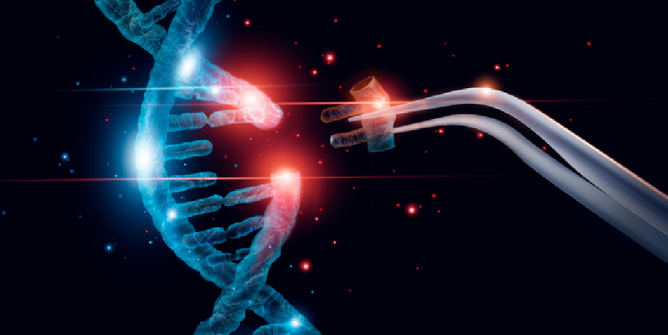
Casebia Presents Dual Approach to Gene Therapy
Cambridge, Massachusetts-based Casebia Therapeutics recently presented new research on a novel therapy being developed for patients with hemophilia A. Casebia Therapeutics is the product of a joint venture between Bayer and CRISPR Therapeutics, which formed in 2016 to advance CRISPR/Cas9 gene-editing therapies. The company’s focus is to develop enduring treatments for genetic diseases of the eye, ear and blood, plus autoimmune, metabolic and cardiovascular conditions. Their findings were presented during at the XXVII Congress of the International Society on Thrombosis and Haemostasis (ISTH), July 6-10, 2019 in Melbourne, Australia.
Casebia has employed a novel, two stage approach that utilizes a pair of technologies that are currently the subject of rigorous scientific investigations by parties encouraged by the potential applications to treat a number of genetic diseases. These technologies include gene therapy delivery via adeno associated virus (AAV) vectors and a genome editing tool known as CRISPR/Cas9.
AAV vectors can deliver the genetic codes that prompt factor VIII (FVIII) production in hemophilia A patients. These type vectors can deliver modified genetic material into an individual’s liver cells without causing disease or triggering significant immune responses.
CRISPR/Cas9 is composed of two important molecules, an enzyme (Cas9) that acts as “molecular scissors” to cut DNA into a targeted location in the genome and a segment of modified RNA that acts as a “guide” to ensure that Cas9 is inserted in the correct spot on the genome.
Investigators first treated hemophilia A mice with AAVs genetically modified to illicit FVIII production. The mice were then injected with lipid nanoparticles (LNP) that delivered CRISPR/Cas9 with instructions to insert the FVIII coding sequence in a precise location on the genome. According to a Casebia press release, the mice that received the dual stage therapy generated normal human FVIII levels and experienced an incremental increase in FVIII in response to repeat dosing of the LNPs carrying CRISPR/Cas 9.
“Our experimental therapy has several advantages over existing approaches,” said Principal Investigator Dr. Alan Brooks. “The first is that it is theoretically stable for a lifetime because it is integrated into the host’s genome. The second advantage is that you can repeat-dose the LNP component to achieve the desired level of FVIII expression. While gene therapy approaches currently in clinical development that use only the AAV component have resulted in FVIII expression in patients, the level of FVIII is unpredictable in individuals and cannot be changed once it is established.”
“Our scientific team, led by Alan Brooks, PhD, have achieved a notable and potentially impactful advance towards a curative treatment for patients with hemophilia A – hemophilia affects an estimated 400,000 people worldwide with a majority having hemophilia A,” added Jim Burns, PhD, President and CEO of Casebia. “While acknowledging that early-stage results in animal models do not always translate into successful human treatments, we are extremely encouraged by the results.”
Source: Casebia press release dated July 8, 2019